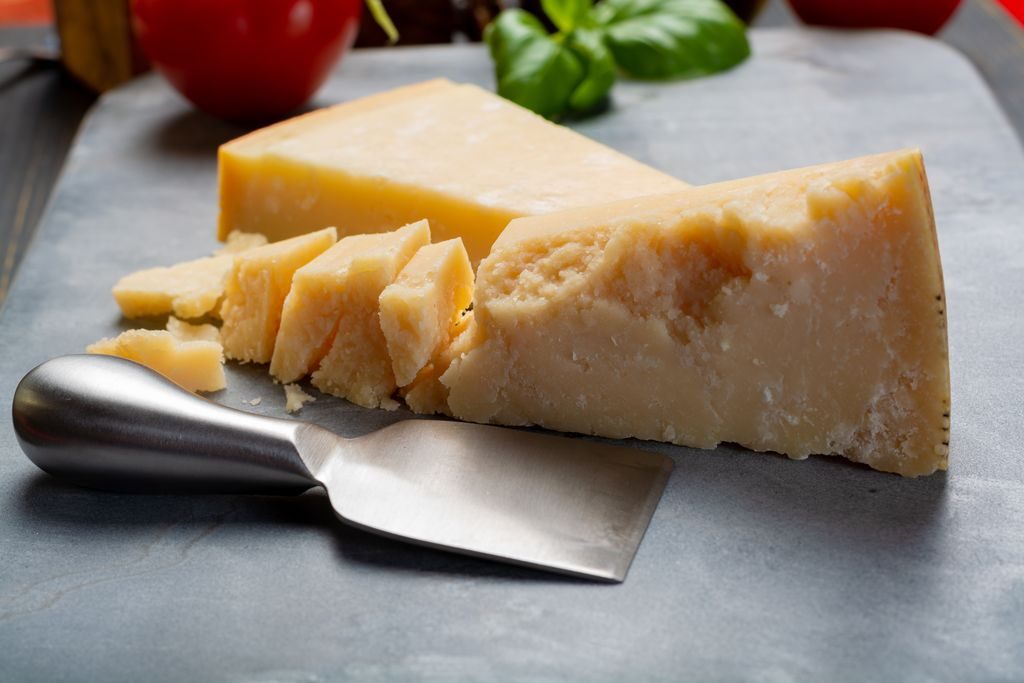Parmesan
Parmesan is one of Italy most loved exports, it’s used to top pasta, risotto and much, much more!

Parmesan is an Italian cheese that comes from the region Emilia Romagna. In fact, the name in Italian is “Parmigiano-Reggiano”, it is called this because it can only be made in the regions of Parma and Reggio Emelia in northern Italy. Similar products made outside of these areas cannot be called “Parmigiano-Reggiano”.
A wheel of Parmesan can weigh up to 40 kg and is aged for a minimum of 12 months! Genuine Parmesan cheese will have “Parmigiano-Reggiano” stamped on the rind.
It is widely considered the king of Italian cheeses and is one of Italy’s biggest exports along with wine, pasta and olive oil.
Parmesan is an essential ingredient in Italian cooking, it can be grated or thinly sliced to top pizzas, plates of pasta, risottos and salads.
Parmesan is more than just a topping, it can be made into chips (or tuile) by frying or baking grated Parmesan until bubbling and then letting it cool.
The Italian dish “melanzane alla Parmigiana” know in English as Aubergine Parmigiana is similar to lasagna but instead of pasta, you used layers of fried aubergine.
Parmesan and Grana Padano
Both have a similar flavour, texture and are made in similar ways, However, there are a few key differences between the two!
The main difference is they come from different areas, Grana Padano (or Grana for short) comes from a much larger region meaning more can be made thus making the price is considerably lower. As they are made in different regions the cows graze in different pastures which means the cheese will have slightly different tastes
Parmesan is aged for at least 12 months, Grana can be ready in only 9 months. Grana is also made from semi-skimmed milk while Parmigiano is made with both whole milk and skimmed milk.
Parmesan Nutritional information
Parmesan only has 3 ingredients cows milk, salt and rennet. This means Parmesan is not suitable for vegetarians and vegans.
In comparison with other cheeses, Parmesan is very high in protein with over 35.8 g per 100g.
There are about 392 calories in 100g of Parmesan. It has a very low lactose level meaning that people with a slight lactose sensitivity should be able to enjoy Parmesan.
It contains high levels of Calcium, Magnesium and Phosphorus. It also has good amounts of Chloride Potassium and Sulfur.
Parmesan may contain probiotic bacteria. probiotics are often called “good” bacteria because they are good for the health of your gut.
It is important to remember that Parmesan is high in Sodium which can increase blood pressure putting stress on your heart.
Recipe suggestions: Pesto




